To see more guns in action, check out the Pew Pew Tactical channel on YouTube.
When it comes to selecting a carry gun, to say that you’ve got a myriad of options on the current market is a bit of an understatement.
The past few years have seen quite the explosion of compact and sub-compact models from pretty much all of the major flagship handgun manufacturers.
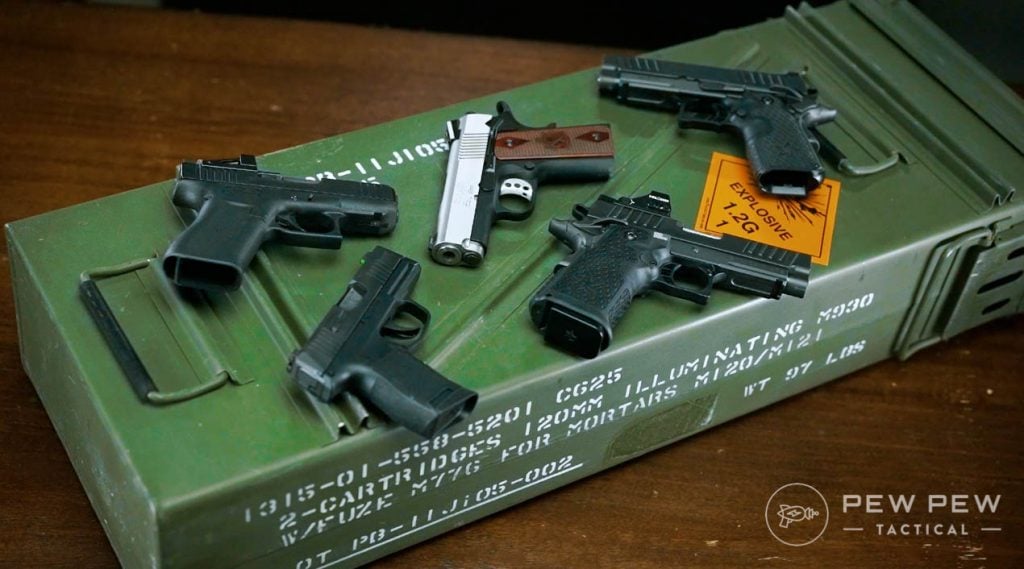
Glock’s G43 and Sig’s P365 series perhaps reside at the forefront of the sub-compact game.
Both now have multiple iterations with different grip lengths and optics compatibilities.
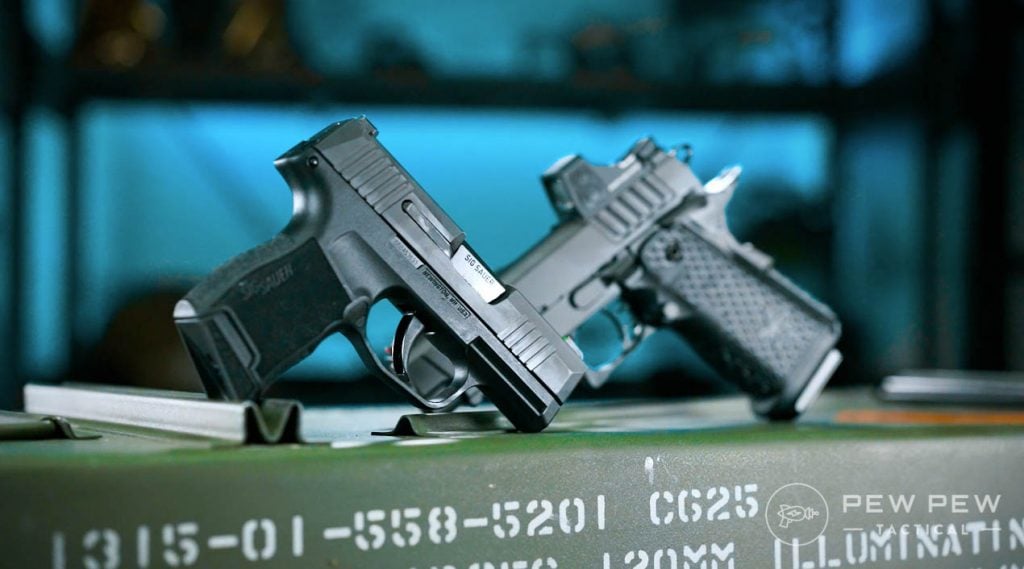
A million different Instagram dudes now run their own holster companies out of their garage. And even companies like Taurus have stepped up their game considerably with their G2C and G3C lines.
But what’s a prospective conceal carry customer to do if you aren’t a fan of polymer striker fires?
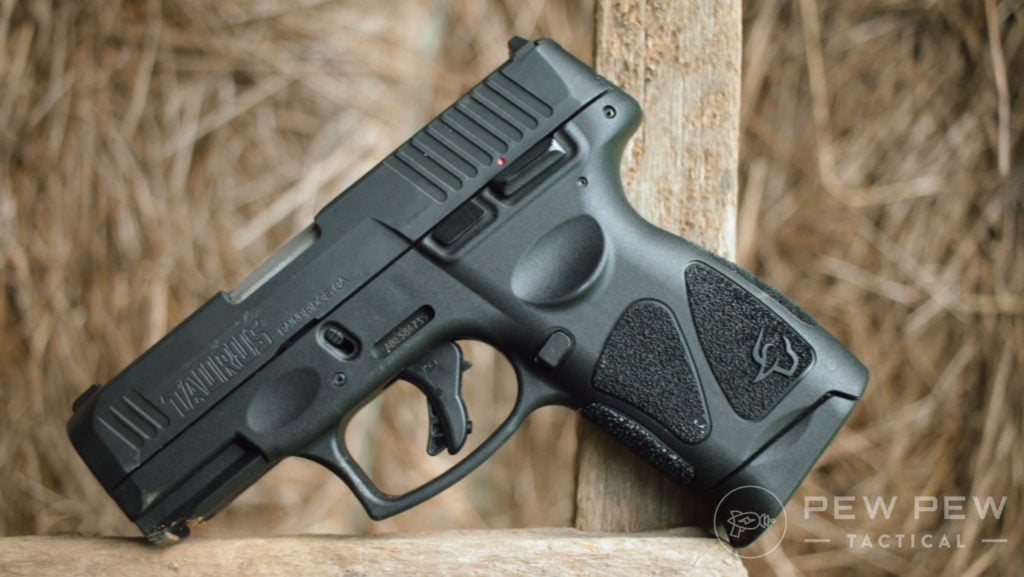
Enter Staccato…and its high-performance, concealable “C” line.
But what sets the C line apart from the likes of Glock and Sig Sauer, aside from the obvious? More importantly, is this Gucci gun line worth your money?
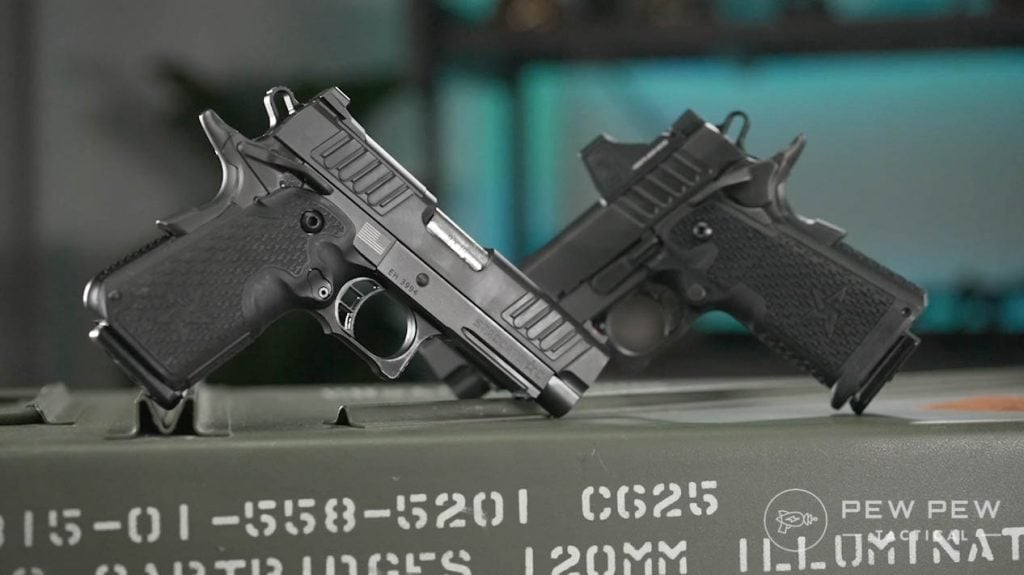
Well, lucky for you, we did all the homework on the Staccato C series and even dropped precious, precious ammo to find out what’s so good about Staccato’s handguns.
Now let’s dive into the C Series…
Table of Contents
Loading…
What’s a 2011?
As always, let’s set the stage.
For the unfamiliar, Staccato acts as the current incarnation of the company formerly known as STI — the original inventors of the 2011 concept.
What’s a 2011, you ask?
In short, a modernized 1911 with double-stack magazine capacity, generally speaking.
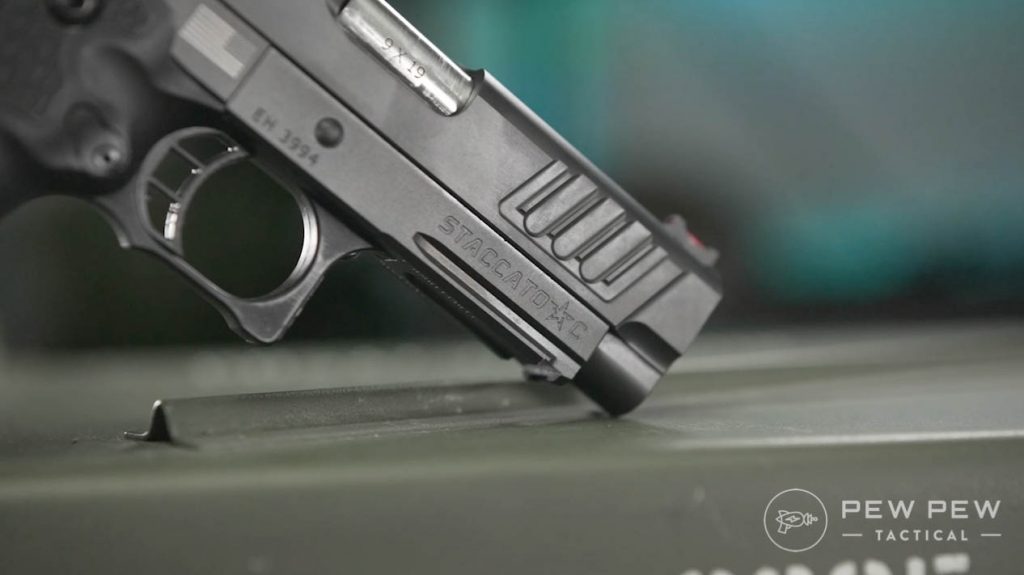
The company now focuses on both duty and carry guns that run right out of the box in addition to its core base of competition-oriented guns.
While 9mm 1911-esque things certainly aren’t the most common offerings in terms of carry guns, they certainly do exist.
Our closest baseline for comparison is probably the Springfield EMP that we took a look at a few years ago. (Read that review here!)
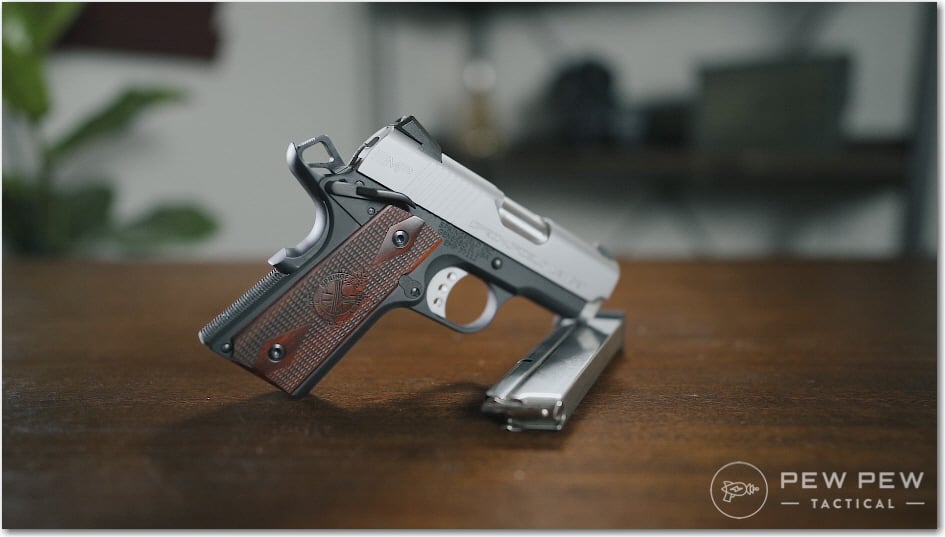
As I recall, I felt kinda lukewarm about the EMP.
It’s a decent option if you need the familiar fire controls of a 1911 in a concealable platform, but nothing really stood out for me.
Why am I talking about the EMP in a Staccato review? To illustrate the point that I have a bit of an anti-1911 bias. (Glocks rule, 1911s drool…let the hate flow.)
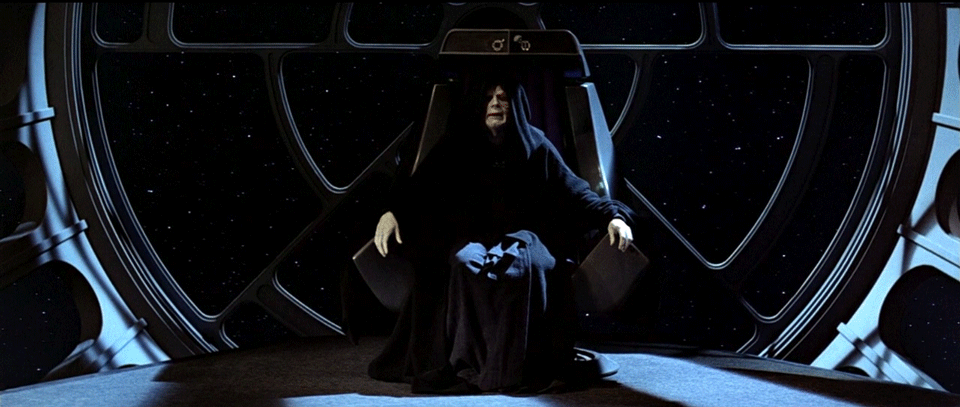
So, it’s telling that my first impressions of the Staccato C and C2 were firmly more enthusiastic than the Springfield EMP.
But can a Glock guy ever come to truly appreciate a 2011? Let’s find out…
First, let’s take a look at the spec comparison.
Spec Comparison
| Staccato C | Staccato C2 | |
| Caliber: | 9mm | 9mm |
| Barrel: | 3.9 in bull barrel | 3.9 in bull barrel |
| Recoil System: | 3.9 in Recoil Master | 3.9 in Recoil Master |
| Trigger: | 4lbs w/ Ambi Safety | 4 – 4.5lbs w/ Ambi Safety |
| Length: | 7.44in | 7.4in |
| Weight: | 26.6oz Empty | 25oz Empty |
| Magazines: | 3 x 8-round | 3 x 16-round |
Staccato C
Simply named, the C is Staccato’s slightly larger, single-stack, steel frame, sneak guy gun.
And it’s the most similar to the EMP for a reasonable 1:1ish comparison.
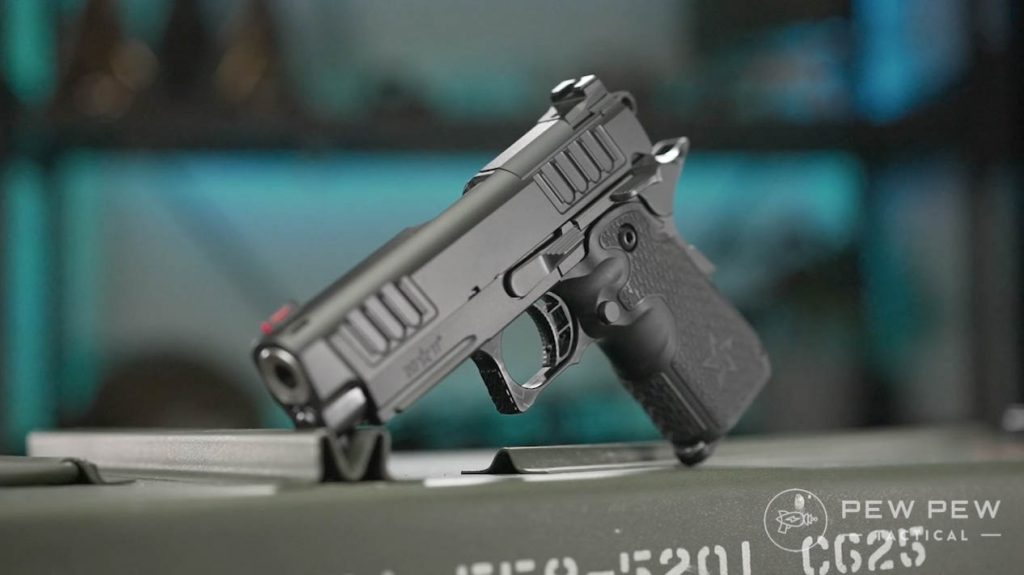
From front to back, you’ve got a super high-vis fiber optic front sight on an aggressively serrated slide. The slide houses a 3.9-inch bull barrel.
There’s a small Picatinny rail for lights and lasers, while a polymer trigger guard with a subtle undercut allows for a more aggressive grip with your support hand.
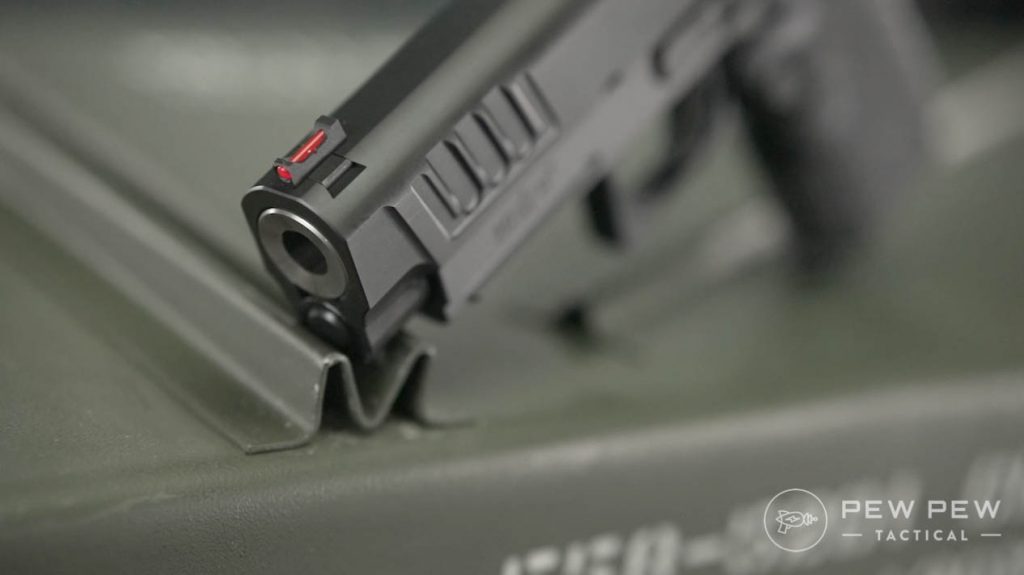
The grip’s got a slightly less aggressive stippling pattern than Staccato’s other hand-destroying texture.
But that probably makes sense if you’re intending to conceal the gun. (You don’t need to sandpaper all your cute lil sensitive tummy bits.)
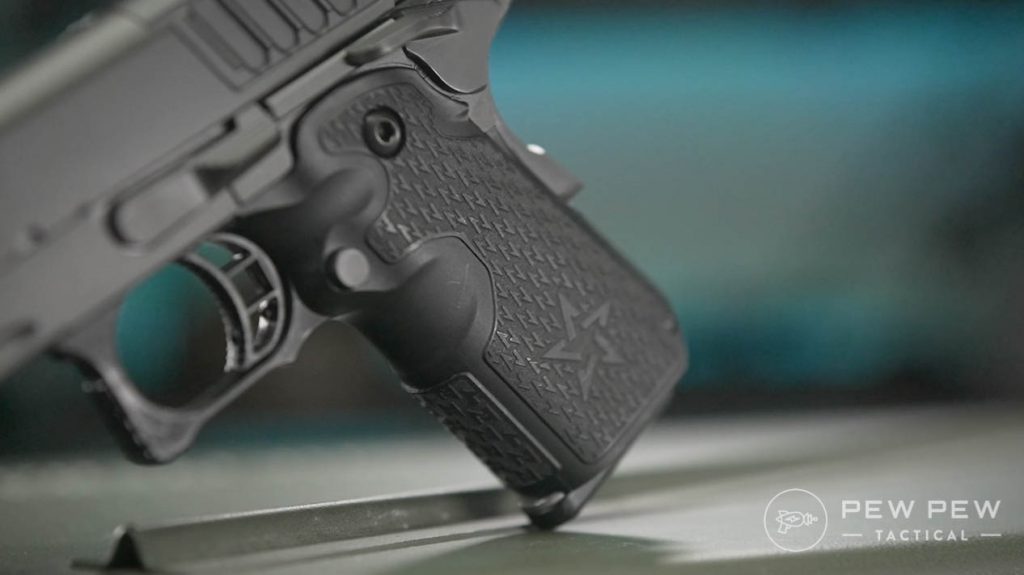
The trigger offers a 4-pound pull with a tiny bit of uptake before a very obvious wall and a nice, clean break.
It boasts an equally obvious and tactile reset and dual safety paddles, providing positive feedback with a snappy click into safe.
While the Staccato C doesn’t come optics-ready right from the jump, the addition of a red dot can be achieved through aftermarket adapter plates.
Prices accurate at time of writing
Prices accurate at time of writing
-
25% off all OAKLEY products - OAKLEY25
Copied! Visit Merchant
Staccato C vs. Springfield’s EMP
There are two big takeaways for the C for me as compared to the EMP.
The first is the weight distribution. Staccato’s C comes in at just about 26-ounces. That’s compared to the EMP’s 27-ounces.
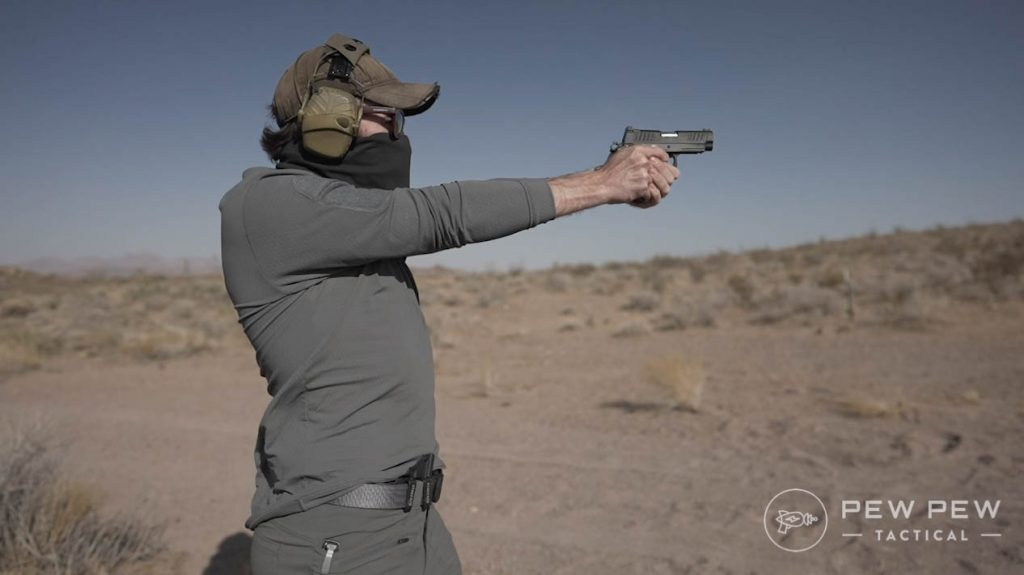
But the slightly longer barrel length on the C means you’re going to notice the ever so slight front heaviness — although this does even out a bit with a loaded inserted.
Second big initial standout is the grip.
The EMP features a pretty traditional 1911 pistol grip — no-frills, some slight checkering on the detachable grip portion, and that’s about it.
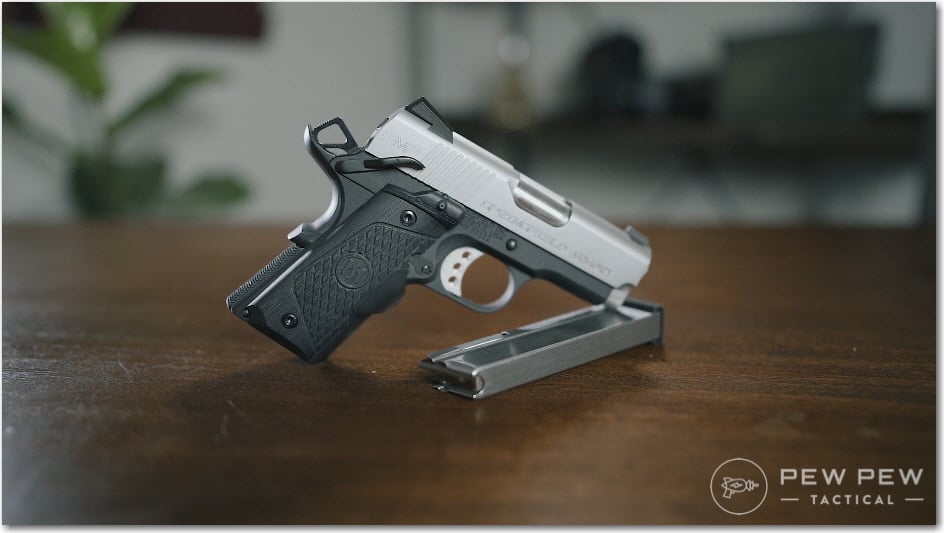
On the other hand, Staccato brings some nice finger grooves that feel like they fit the hand in a much more natural way.
Not to mention, that trigger guard actually features a double undercut — meaning you’ve got a nice upward curve where the trigger guard meets the pistol grip.
This allows you to get as high up on the gun as possible.
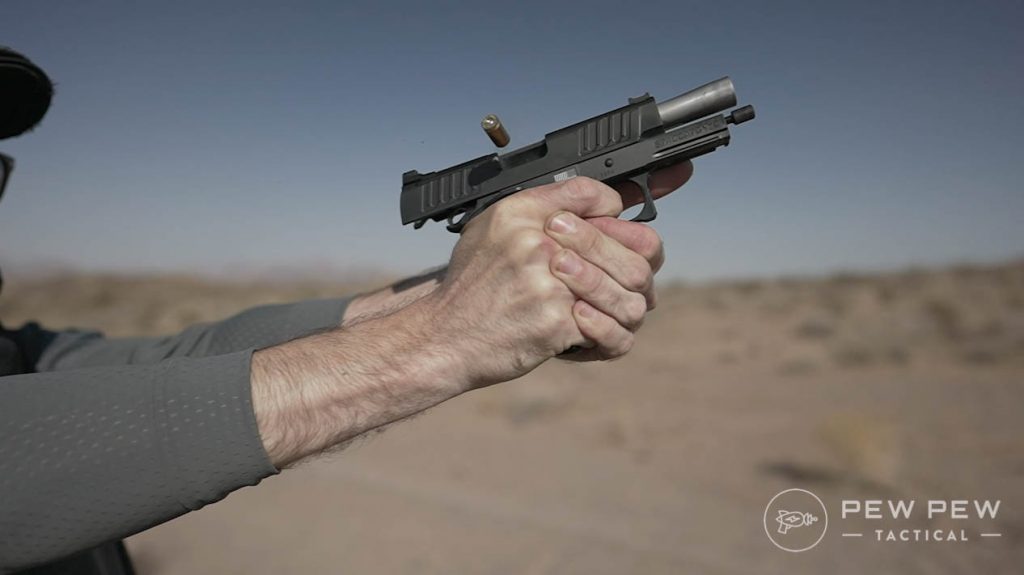
Additionally, that second, slighter undercut forward of the trigger offers just enough of a leverage point to really drive your support hand underneath the frame and apply extra upward stabilizing tension with the ridge or knuckle of your index finger.
The end result is that I felt like I had much better control of the C and C2 than the EMP.
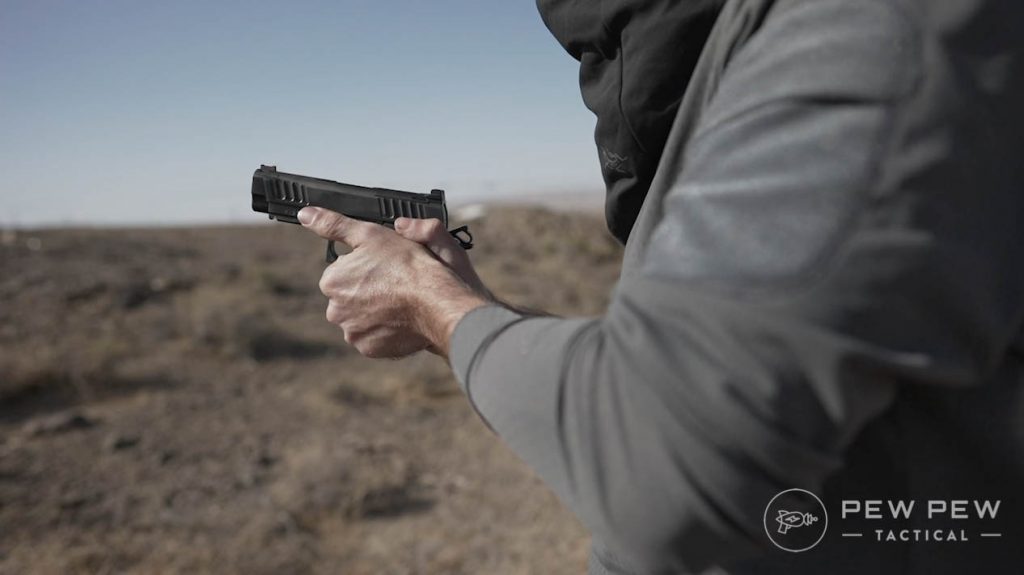
Shooting the C
The C’s single-stack nature also means the grip is a bit less girthy than the double stack guns. This might be important, depending on the size of your paws.
I have pretty average-sized dude hands and run in a kind of weird spot right between a medium and large with most glove manufacturers.
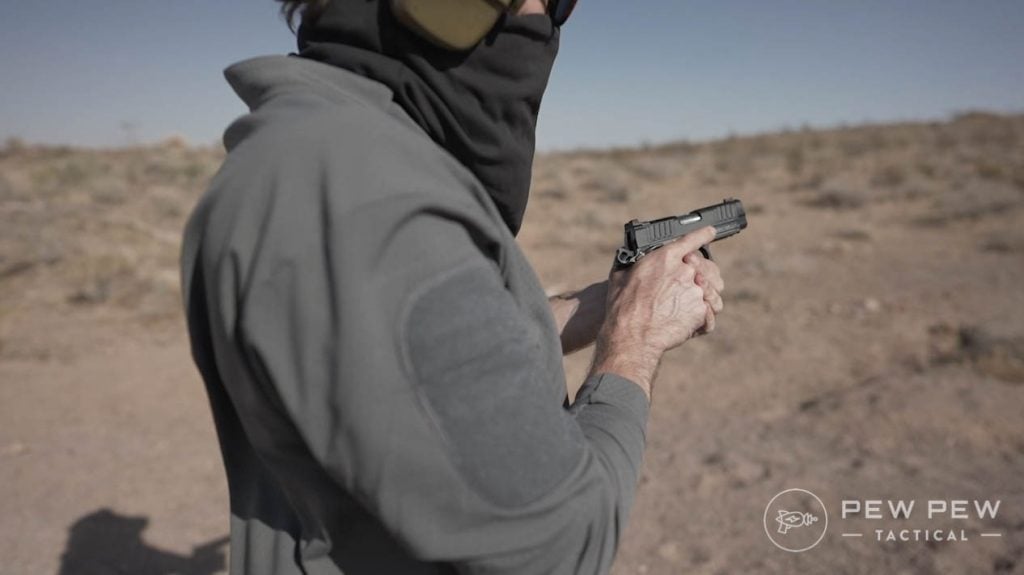
The C’s grip width is pretty decent without being so small as to feel as if I’m sacrificing retention.
Stacatto’s double-stack models, though, push the limit of what I find comfortable girth-wise.
Both the C and C2 took a bit of getting used to after I managed to spoil myself with the silky smooth XC and XL.
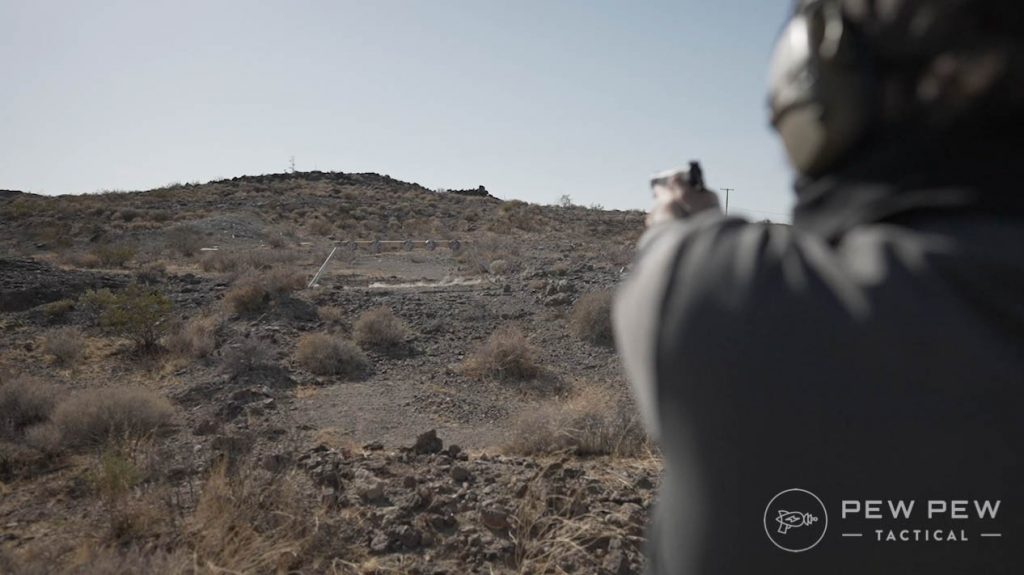
But once I warmed up and made a tiny bit of a grip correction, things started to click.
Running the plate rack up close felt pretty good. I’m by no means the fastest shooter, but working it with the C’s irons at a reasonable pace was totally doable.
I alternated between 15-yard steel and more deliberately aimed shots between 25- to 30-yards consistently.
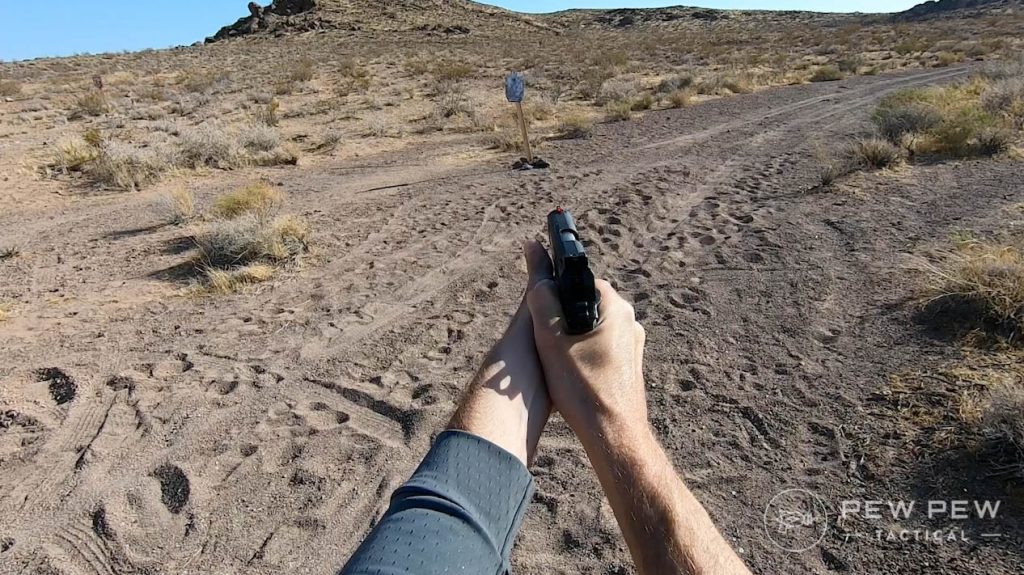
Concealed Carry with the C
If you intend to carry the C…you might need to think smartly about dressing for the occasion and your own body geometry.
While the C is reasonably small, it certainly doesn’t come close to the incredibly low profile of, let’s say, Sig’s P365 platform.
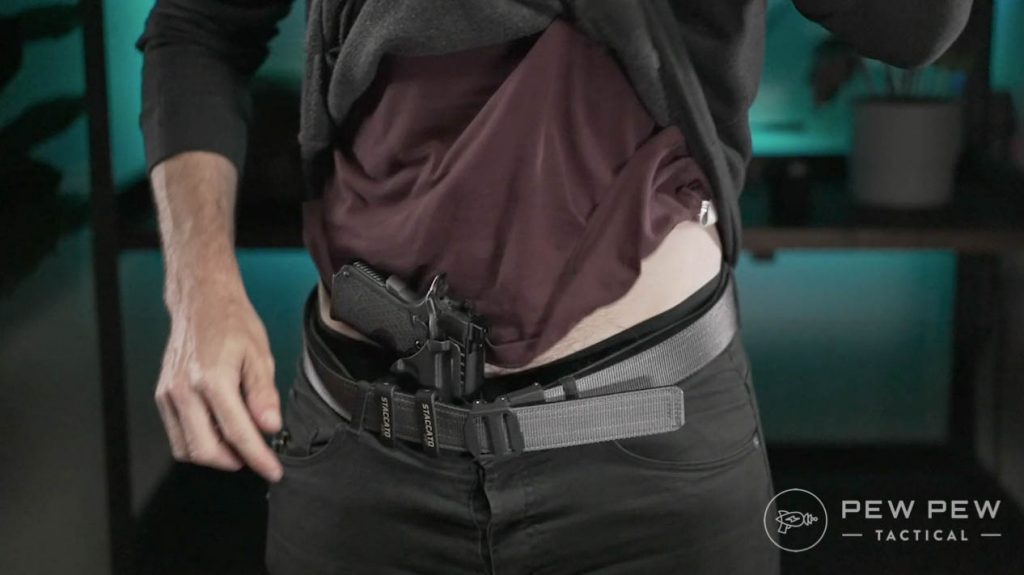
As a result, this thing prints pretty hard with most of the clothes in my wardrobe.
But, everything’s a give and take when it comes to the world of carry guns. There’s literally no one size fits all solution.
By that same token, smaller platforms like the P365 tend to introduce a nasty amount of muzzle flip due to the diminutive stature — so pick your poison.
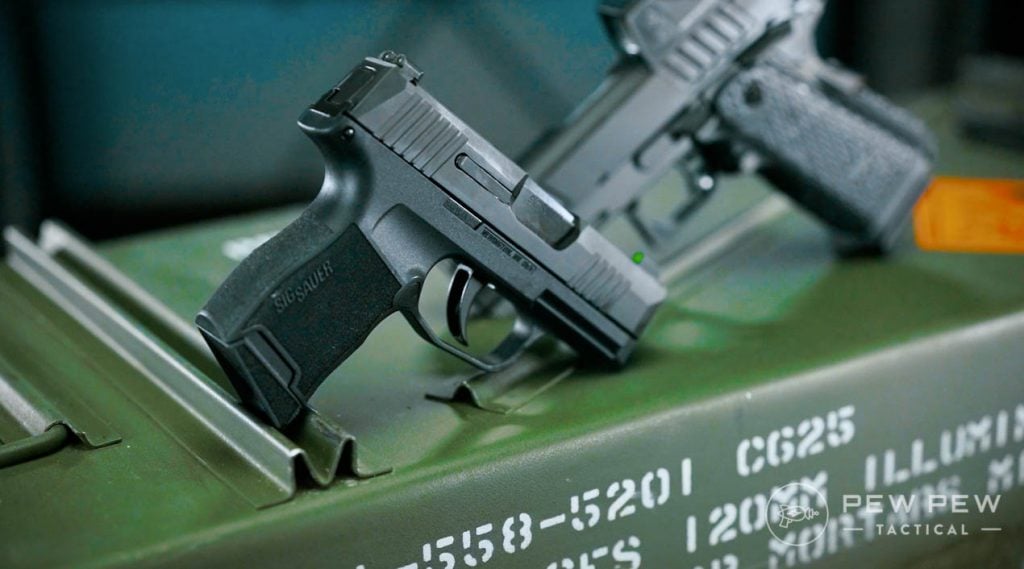
Staccato C2
You’re in pretty much the same territory features-wise with the C2, but with a few key differences.
The C2 is Staccato’s double-stack carry model. So, that grip is standard double-stack bigboi size.
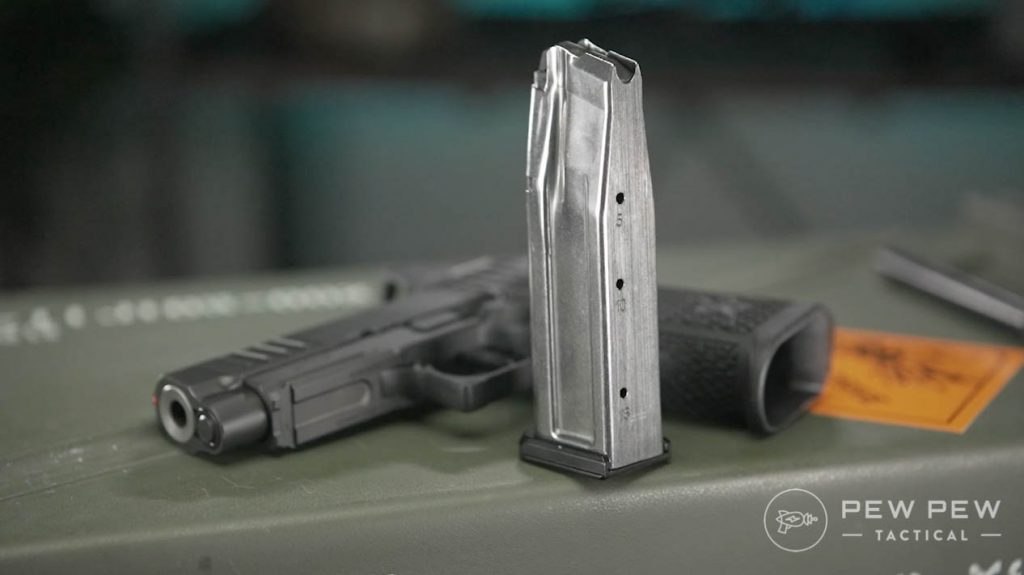
This might knock you down a few more pegs in the concealability department. But it allows you to double your magazine capacity. You get a decent 16-rounds with the C2.
Our C2 wore a Holosun 507K straight from the get-go.
Prices accurate at time of writing
Prices accurate at time of writing
-
25% off all OAKLEY products - OAKLEY25
Copied! Visit Merchant
Again, running a hefty double-stack 2011 with an optic might limit your wardrobe options.
That said, a red dot goes a long way in making fast, repeatable shots feel like a breeze.
Prices accurate at time of writing
Prices accurate at time of writing
-
25% off all OAKLEY products - OAKLEY25
Copied! Visit Merchant
Maybe a Little Too Aggressive??
The C2 also features a more aggressive grip texture compared to the slightly smoother stippling on the C.
Man, that does really get into your hands after a couple hundred rounds.
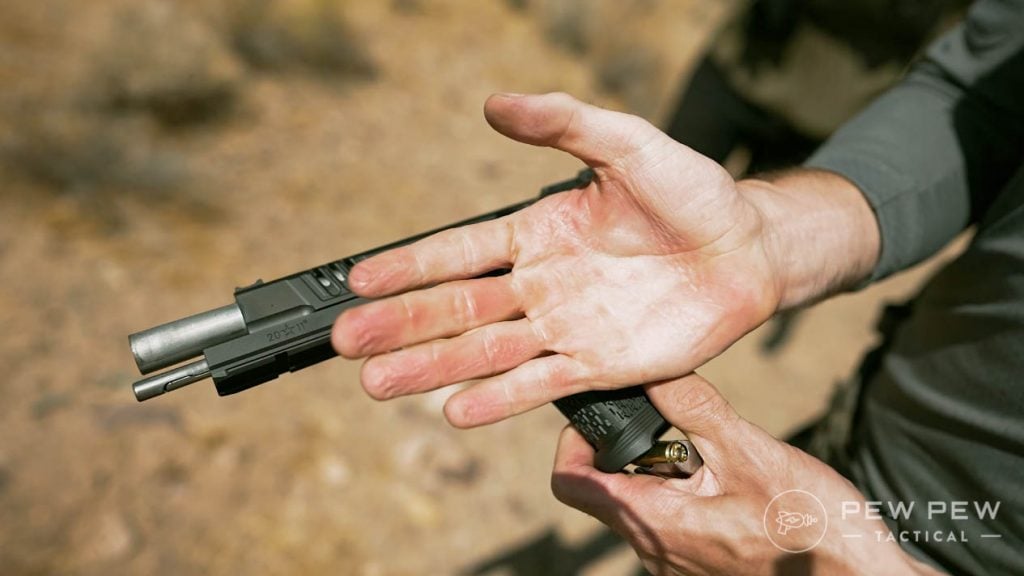
Maybe a slight pain to train with on days where you’re pushing that round count up.
However, maintaining weapon retention on a carry gun is probably worth the few extra calluses and blisters you might incur.
Speaking of, I found the webbing between my thumb and trigger finger got irritated while shooting due to the slight increase in snappiness on the smaller Staccato guns.
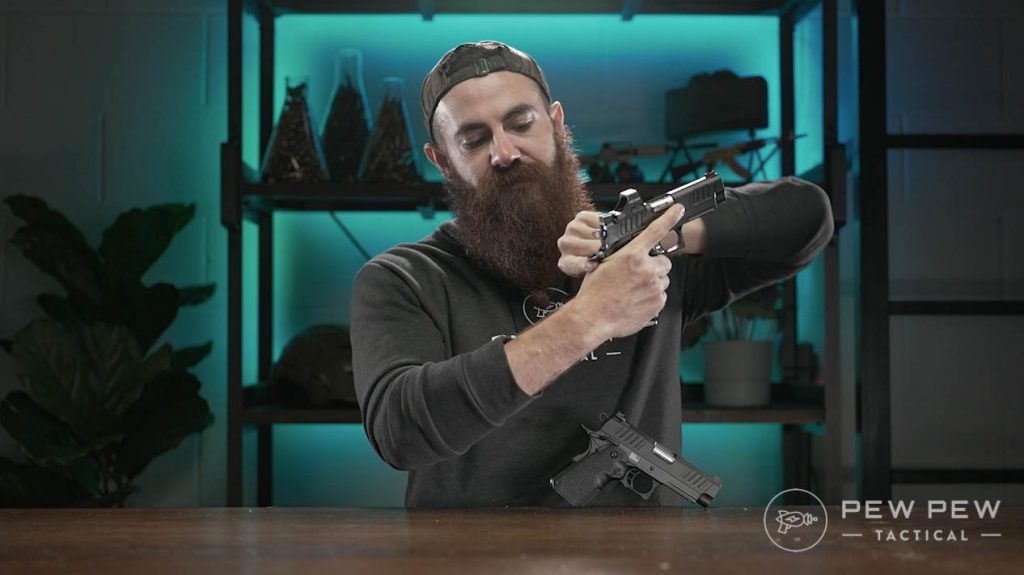
I also drove my hand up and into the gun’s beavertail as much as possible to allow for that high purchase that, at least for me, equals better control.
The combination of the two likely led to this irritation. Your mileage may vary, but be prepared to get your dainty mittens torn up.
Mag Releases…They’re a Thing
Both the C and C2 use a beautiful magazine ejection action. It sees the spent mag kicked out of the mag well with a little bit of force.
Although neither of the carry models sports the flared magazine wells of their big brothers, reloads still felt fast.
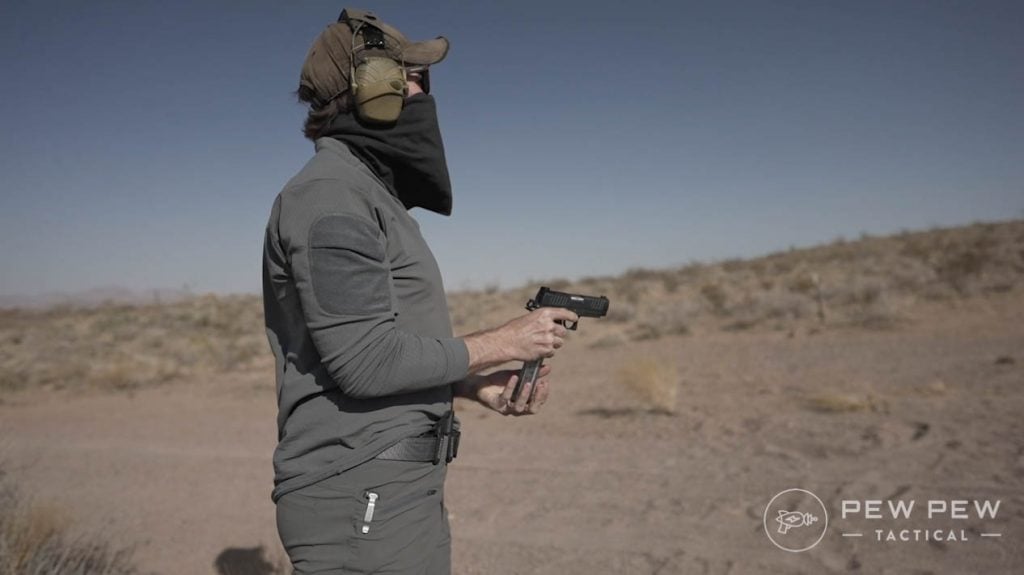
This is likely because the C series single stack mag well is still slightly larger than standard. For example, the C’s mag well is larger than the EMP’s.
If you’re in a situation where adrenaline spikes and gross motor skills leave the room, you’re going to want all the help you can get if you’ve gotta pull off a reload.
I also like that the Staccato mag release hits this sweet spot of feeling neither too flimsy nor too stiff.
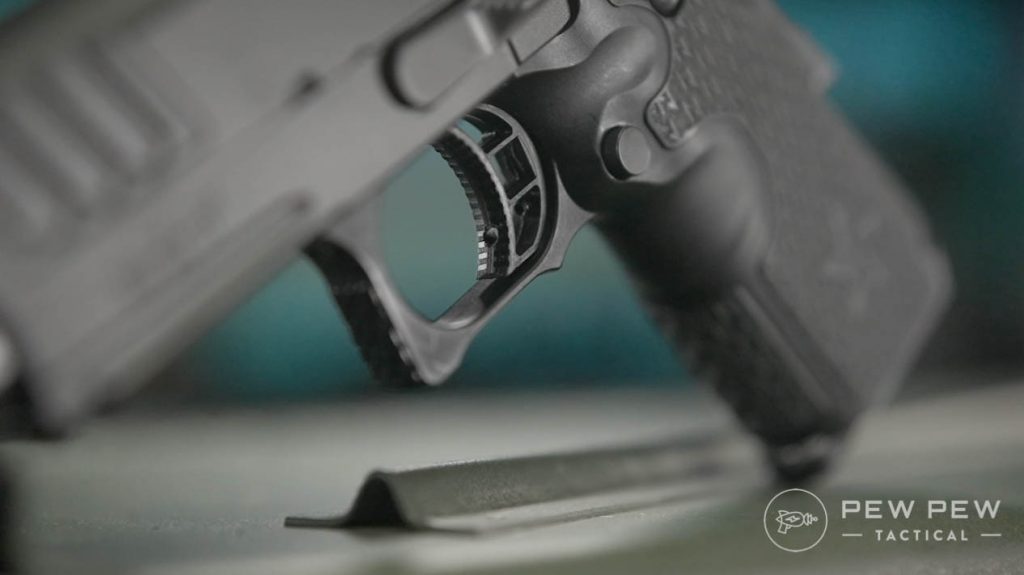
It takes a good amount of force applied directly down onto the button to actuate the release. So, it’s unlikely it’d release accidentally while smooshed up against your dad bod.
In short, I like the smoothness of Stacatto’s setup.
Shooting the C2
Both guns ran fantastic with off-the-shelf nothin’ fancy Blazer 124-grain — zero issues to speak of.
Whatever recoil mitigation magic Stacatto’s got going on in their carry guns absolutely makes a difference.
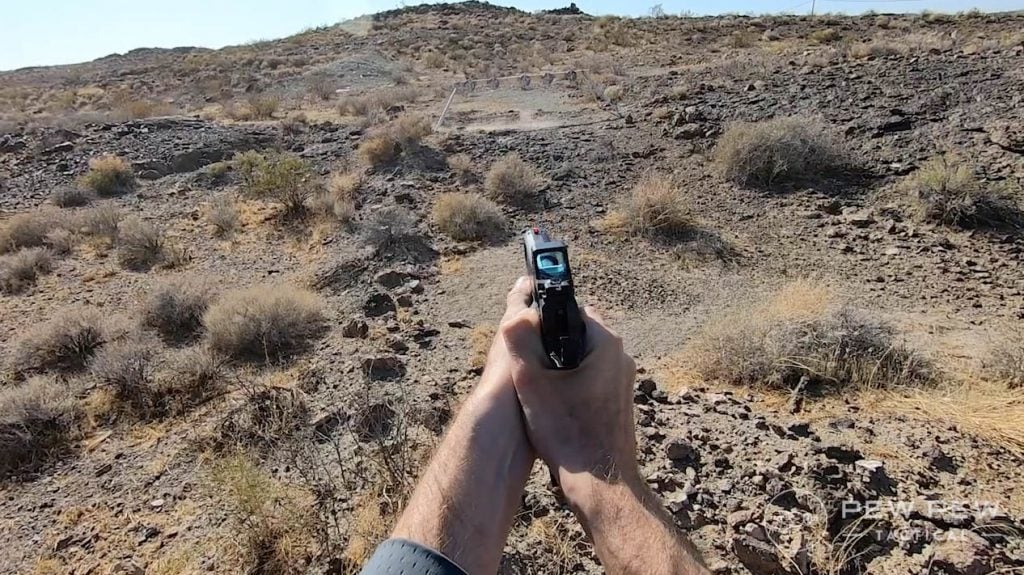
Even magazine dumps with the C and C2 felt much more controllable than any other carry guns we fired for comparison.
Obviously, less muzzle rise means you’re wasting less time making micro-adjustments to get back on target in between shots.
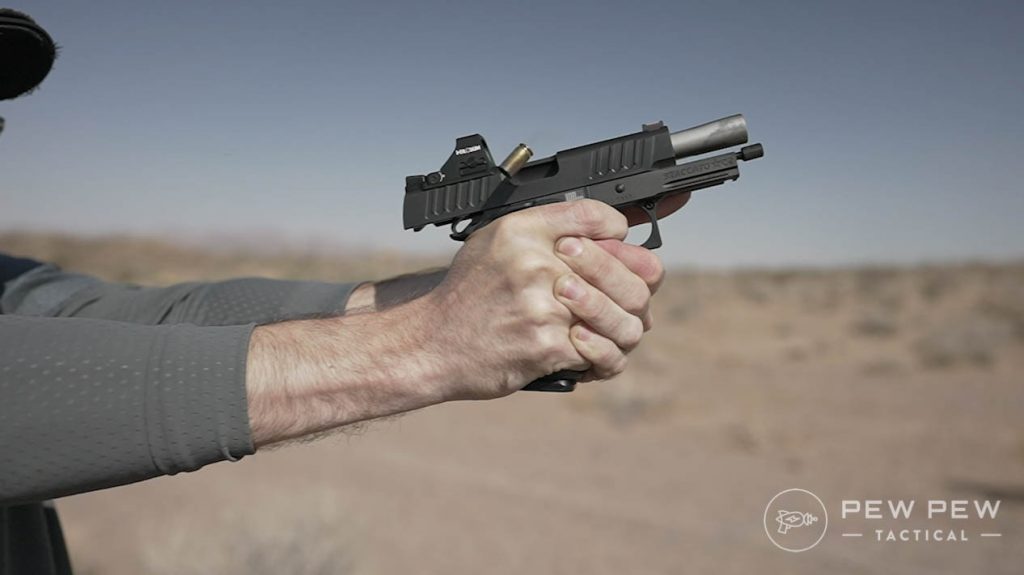
In a super bad situation where small amounts of time might make all the difference, that probably matters.
However, we did encounter an occasional weird tick where the slide wasn’t locking back on an empty mag.

One instance, in particular, saw the hammer remain down despite the fact the gun fired and ejected the casing.
As a Glock dude, this happens here and there when I’m not particularly careful about my thumb placement. But the Staccato’s geometry is such that it felt pretty impossible for that to be the case.
If you look at some of the footage, you’ll notice that occasionally my support hand thumb flutters while looking for purchase on the frame.

The only thing I can think of is that I may have put some pressure on the pivot pin portion of the slide lock lever at just the right point…but it remains a mystery, albeit a relatively unimportant one.
Bottom Line
Staccato’s C and C2 feel great to shoot – aggressive texturing aside. They are smooth, and all controls seemingly function as intended.
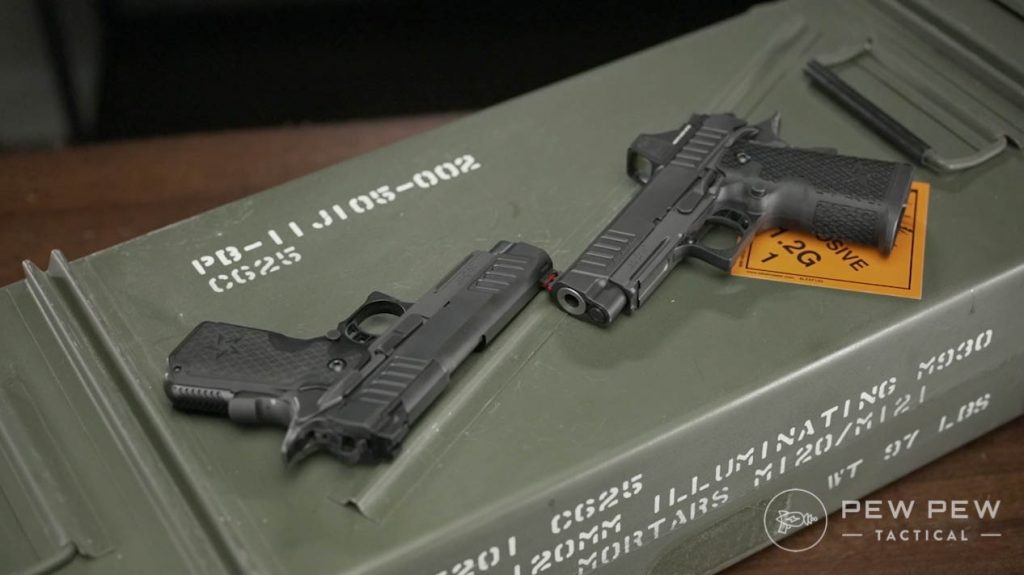
Again, as someone with a decent bias against 1911s, I’m not positive either of them would be my first choice for a carry gun — especially since my general day-to-day wardrobe would mean significant printing.
But if you’re already someone with an affinity for 1911s, have clothing better suited to concealing a decent-sized gun, or simply want a carry gun that’ll run right out of the box…
By all means, check Staccato’s C and C2 out.
Prices accurate at time of writing
Prices accurate at time of writing
-
25% off all OAKLEY products - OAKLEY25
Copied! Visit Merchant
Conclusion
The C and C2 continue Staccato’s commitment to performance-driven handguns. Offering smooth shooting and an out-of-the-box appeal, they won over this 1911 skeptic.
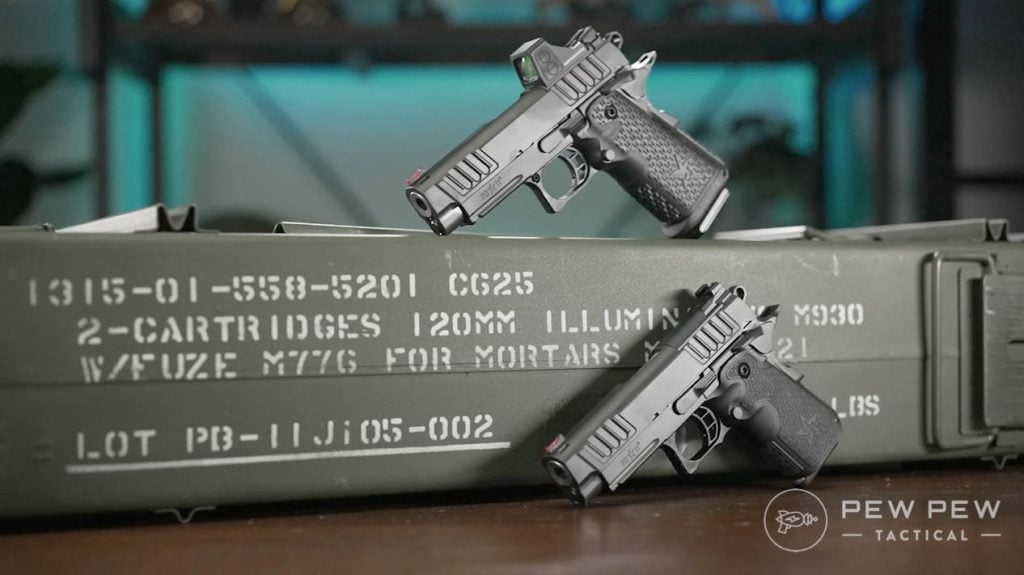
The price of admission for all this high-end stuff comes in high, though. Staccato’s base model C sits right around $1,700, and the optics-ready C2 reaches up to about $2,300.
But if you get a chance to fire any of their guns, I think you’ll probably begin to understand the performance that comes along with that price tag.
Prices accurate at time of writing
Prices accurate at time of writing
-
25% off all OAKLEY products - OAKLEY25
Copied! Visit Merchant
Again, to see these in action, peep the video below.
What do you think of the Staccato C and C2? Let us know in the comments below. Ready for more Staccato action? Take a look at our review of the Stacatto XC and XL.






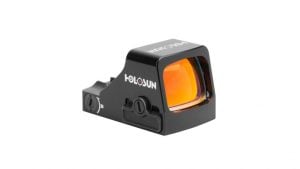

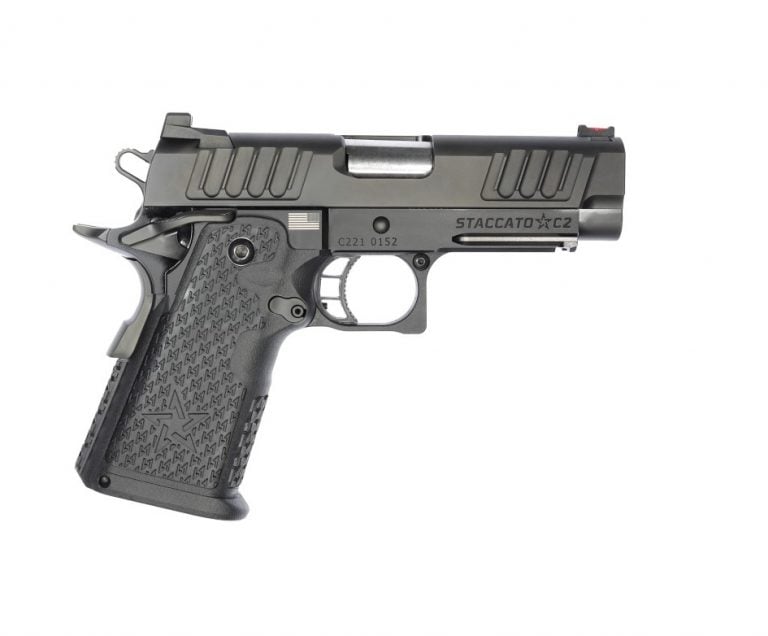










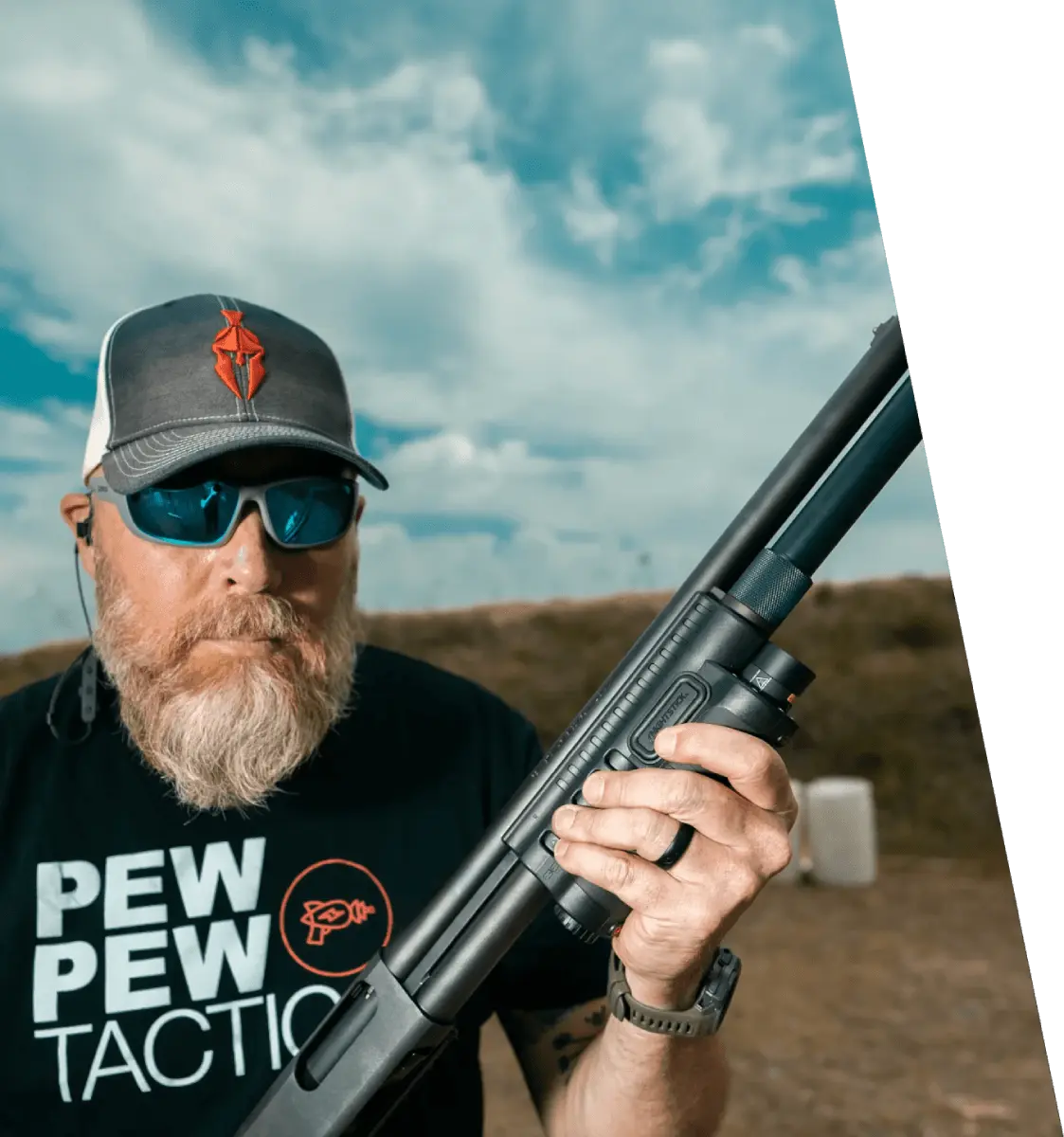

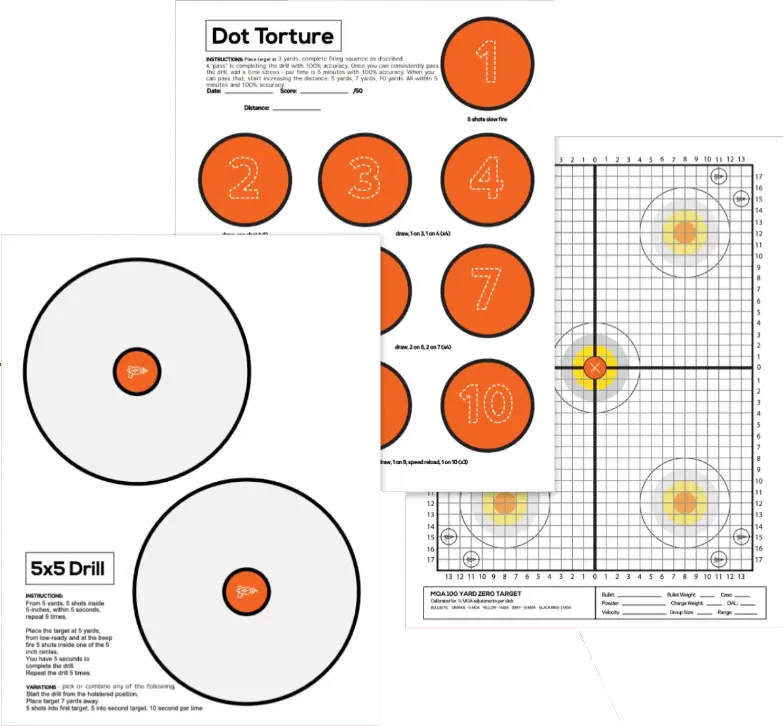
5 Leave a Reply
Needs an editor. Very hard to read. Forget all the cliches.
I’ve found the C to be a comfortable EDC not only to carry, but shoot as well. Very reliable, to date no FTF, not to mention laser accurate. I am a larger frame individual, but at appendix carry, printing has not been an issue. I thought the review was well written and very comprehensive.
Heck if yer gonna go for a rig that requires a trenchcoat for concealment, go all in and carry a RIA Tac Ultra FS HC .45 for around $700...you'll save 1200 bucks or so, allowing you to buy a box or two of ammo. Great article btw.
I own the C2 and it has been by no means hard to conceal. It's not like you're trying to hide a Desert Eagle or anything. If you look at the specs of the C2, you'll see that it's very comparable to a Glock 19, Walther PPQ, Sig P229, etc...in size. Also, this is my favorite shooting gun that I've owned and I've had my fair share of nice guns. I can't imagine any RIA being in the same league without dumping tons of money into it.
How about an article covering the best and brightest sights for the best subcompacts and compact weapons like Sig’s P365s, all of them like the P365SAS, the standard P365, the P365XL, the P365 , and the new P365X, and maybeGlock’s 43? Thanks